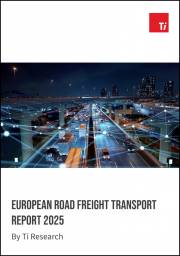
|
시장보고서
상품코드
1638706
일본의 도로 화물 운송 시장 평가 : 목적지, 차량 유형, 운송업체 유형, 최종사용자, 지역별 기회와 예측(2018-2032년)Japan Road Freight Transportation Market Assessment, By Destination, By Vehicle Type, By Carrier Type, By End-user, By Region, Opportunities and Forecast, FY2018-FY2032F |
||||||
일본의 도로 화물 운송 시장 규모는 2024년 723억 4,000만 달러에서 예측 기간 동안 3.96%의 연평균 복합 성장률(CAGR)로 2032년 987억 달러까지 성장할 것으로 예상됩니다.
일본의 도로 화물 운송 시장은 빠른 배송 옵션에 대한 고객의 요구를 반영하는 라스트 마일 배송 서비스에 대한 수요 증가 등 여러 요인에 의해 성장하고 있습니다. 일본의 잘 정비된 인프라, 광범위한 고속도로 네트워크, 첨단 물류 센터는 일본 구석구석까지 원활한 흐름을 보장합니다. 일본은 화물 운송 업무에 IoT 및 텔레매틱스 통합과 같은 기술 발전에 중점을 두어 효율성을 높이고 운영 비용을 절감하여 성장을 더욱 촉진하고 있습니다. 운송 부문의 현대화 및 탄소 배출량 감축을 위한 정부의 이니셔티브는 친환경 차량에 대한 투자를 촉진하고 시장 확대에 기여하고 있습니다.
고령화 인구 증가로 인한 인력 부족으로 인해 기업들은 화물 운송 업무를 외주화할 수밖에 없었고, 이는 제3자 물류 서비스 시장의 확대로 이어지고 있습니다. 또한 식품, 의약품 등 물류의 온도 관리는 현재 시장 성장의 또 다른 중요한 측면입니다. 일본은 지리적으로 인접 국가와의 교역이 용이하기 때문에 국경을 넘는 화물 운송에 많은 노력을 들이지 않고도 효율적으로 운송할 수 있다는 점도 일본 시장의 성장에 기여하고 있습니다. 이러한 요인들이 복합적으로 작용하여 일본의 도로 화물 운송 시장의 꾸준한 확장을 촉진하고 있습니다.
일본의 도로 화물 운송 시장을 조사했으며, 시장 정의와 개요, 시장 규모 추이 및 예측, 각종 부문별 상세 분석, 산업 구조, 시장 성장에 영향을 미치는 요인 분석, 사례 연구, 경쟁 구도, 주요 기업 프로파일 등의 정보를 정리하여 전해드립니다.
목차
제1장 프로젝트의 범위와 정의
제2장 조사 방법
제3장 주요 요약
제4장 고객의 소리
- 제품과 시장 정보
- 브랜드 인지 모드
- 구입 결정시에 고려되는 요소
- 프라이버시와 규제에 관한 인사이트
제5장 일본 도로 화물 운송 시장 전망
- 시장 규모 분석과 예측
- 시장 점유율 분석과 예측
- 발송지별
- 차량 유형
- 캐리어 유형별
- 최종사용자별
- 지역별
- 기업 점유율 분석(주요 5개사 및 기타)
- 시장 맵 분석
제6장 수급 분석
제7장 밸류체인 분석
제8장 Porter의 Five Forces 분석
제9장 PESTLE 분석
제10장 운임 분석
제11장 시장 역학
- 시장 성장 촉진요인
- 시장이 해결해야 할 과제
제12장 시장 동향 및 전개
제13장 사례 연구
제14장 경쟁 구도
- 주요 5개사 경쟁 매트릭스
- 주요 5개사의 SWOT 분석
- 주요 10개사 상황
- Nippon Express Co., Ltd.
- Yamato Transport Co., Ltd.
- Sagawa Express Co., Ltd.
- Seino Holdings Co., Ltd.
- Hitachi Transport System, Ltd.
- Mitsui-Soko Holdings Co., Ltd.
- KRS Corporation
- JAPAN LOGISTIC SYSTEMS CORP.
- SENKO Co., Ltd.
- Kokusai Express Co., Ltd.
제15장 전략적 제안
제16장 당사에 대해 & 면책사항
LSH 25.02.18Japan road freight transportation market is projected to witness a CAGR of 3.96% during the forecast period FY2025-FY2032F, growing from USD 72.34 billion in FY2024 to USD 98.70 billion in FY2032.
The Japan road freight transportation market is indeed growing due to several factors such as, rising demand for last-mile delivery services, driven by customers' preference for speedy delivery options. The well-developed infrastructures of Japan, its extensive network of highways as well as advanced logistics centers, ensure smooth flow from one corner of the nation to another. The country's focus on technological advancement, such as the integration of IoT and telematics in freight operations, has increased efficiency and reduced operational costs, further fueling growth. Government initiatives to modernize the transport sector and reduce carbon emissions have also spurred investments in eco-friendly vehicles, which have contributed to the market's expansion. The increased aging population within Japan resulted in an increasing market for third-party logistics services since companies had to outsource freight operations due to manpower shortages. The increasing temperatures and controlling logistics for cold produce, such as drugs and foods, are now other critical dimensions in this market growth. Japan is strategically located along the Asia-Pacific for easy trade with neighboring nations, ensuring that cross-boundary freights are performed efficiently without much hassle, hence its growth. Together, these factors drive the steady expansion of Japan's road freight transportation market.
In November 2024, Japan plans to create an automated cargo transport corridor known as the conveyor belt road between Tokyo and Osaka to address a truck driver shortage and reduce emissions. This innovative system, set to begin trials in 2027, automates cargo transport, improving efficiency and safety while decreasing reliance on human drivers. Streamlining logistics and integrating with other transport modes will mitigate workforce challenges, enhance operational efficiency, and support sustainable growth, ultimately driving expansion in Japan's road freight transportation market.
E-commerce to Fuel Road Freight Transportation Market
E-commerce is a major growth engine in the Japanese road freight transport market, and it has considerably increased the demand for effective logistics and delivery services. While online purchases continue to gain popularity, consumers expect faster and more reliable deliveries, especially for the last mile logistics. This has led to a sharp increase in parcel volumes, requiring a robust and optimized road freight network to meet customer demand. Companies are investing in advanced technologies such as route optimization and real-time tracking to handle the growing freight volumes associated with e-commerce effectively. In addition, the electronic trade platform is often based on the 3rd logistics suppliers that extend the road cargo section. The growth of electronic commercial transactions has created a new transportation opportunity controlled by the temperature of products such as food and pharmaceuticals, which are diversifying services provided by the Japanese road cargo industry.
In March 2024, Mitsui & Co., Ltd., in partnership with Shopify Japan, launched Plus Shipping to support the digital transformation of delivery operations for e-commerce merchants in Japan. This service integrates with Japan's major delivery companies, offering a streamlined one-stop solution for delivery orders and payments, reducing operational workloads by up to 93%. Plus Shipping handles a wide range of delivery needs, from small to large packages, including temperature-controlled transport. This initiative addresses the driver shortage and rising logistics costs, enhancing efficiency and competitiveness in the Japanese e-commerce and road freight transportation markets.
Technology Advancements to Drive Market Growth
Technological advancements are fueling the growth of the Japan road freight market by increasing efficiency, reducing costs and improving service quality. Innovations such as IoT, telematics and AI-based systems enable real-time tracking, better route optimization and predictive maintenance thereby minimizing delays and maximizing productivity. Automation in the warehouse and the use of automatic operating vehicles optimize logistics operation, eliminate lack of work and reduce human errors. In addition, adoption of environmentally friendly technologies such as electrical trucks and hydrogen trucks corresponds to state stability targets and attracts investment in modern fleets. Digital freight management platforms and seamless communication between shippers and carriers have also improved operational transparency and efficiency. These advancements will enable companies to meet the growing demand for e-commerce and time-sensitive deliveries, strengthening the overall competitiveness of Japan's road freight market.
In July 2023, the adoption of Platio by Rakusai Trucking Co., Ltd. represents a significant leap towards digital transformation in the Japanese road freight transportation market. By implementing the Delivery Record App, the company enhances the efficiency and transparency of freight operations, thereby reducing the burden on drivers and customer service representatives. This technological advancement addresses critical issues like delivery verification and incident tracking, which are vital for maintaining trust with clients. Consequently, this move not only mitigates logistical challenges but also sets a precedent for other companies to embrace digital solutions, ultimately driving growth and innovation in Japan's road freight sector.
Less-than-Truckload Dominate Road Freight Transportation Market
The less-than-truckload segment is dominating Japan's road freight transportation market due to its efficiency in catering to small and medium-sized enterprises which constitute over 90% of truck carriers in the country. LTL allows multiple shippers to share truck space, reducing transportation costs and increasing flexibility for businesses with smaller cargo volumes. The rise in e-commerce and demand for frequent smaller shipments has further boosted LTL services. Japan's urbanization and short transportation distances favor LTL over full truckload services making it the preferred choice for companies seeking cost-effective and sustainable logistics solutions.
In November 2024, Spiral.AI Inc., developer of services powered by large language models and other AI technologies, is partnering with Yamato Holdings Co., Ltd., which majorly deals in Less-than-Truckload carrier, to launch a proof of concept for a multilingual generative AI character to help provide a smoother travel experience for visitors to Japan and to reduce the workload of facility staff who support them. The company has also shown several signs of growth in recent years, out of which most of its workings are LTL.
Central Region Dominates Japan Road Freight Transportation Market
The Central region of Japan, especially around Tokyo, is highly important in the road freight transportation market for several reasons. Its geographical location places Tokyo as a hub for the domestic and international movement of goods with easy access to major ports and airports that help in multimodal logistics. Advanced infrastructural facilities abound here, including the well-developed network of highways and expressways that effectively link key industrial and commercial centers. All this results in smooth goods movement. Tokyo has a high concentration of businesses, manufacturing plants, and distribution centers, and all these make great demands on the road freight sector. In the Greater Tokyo Area, a population density as high as it is, creates the necessity for effective consumer goods delivery. The fast growth of e-commerce has been set to increase the need for faster and more reliable transportation services. Additionally, several logistics hubs and distribution centers in Tokyo and its vicinity improve the efficiency of warehousing and distribution, further entrenching the Central region's stranglehold in Japan's road freight market.
In September 2024, Maersk co-hosted Japan's first methanol bunkering simulation at the Port of Yokohama, which is located in Central region of Japan, using its dual-fuel methanol vessel the Alette Maersk. This initiative in collaboration with Kokuka Sangyo and other stakeholders aims to develop methanol bunkering infrastructure and guidelines in Japan. This effort supports the growth of Japan's road freight transportation market by promoting sustainable fuel alternatives and enhancing the efficiency and environmental sustainability of maritime transport.
Future Market Scenario (FY2025 - FY2032F)
Increased adoption of autonomous vehicles, electric trucks, and advanced logistics software will enhance efficiency and reduce costs.
Growing emphasis on reducing carbon emissions will drive the shift towards greener transportation solutions, such as electric and hydrogen-powered vehicles.
Continued expansion of e-commerce will boost demand for last-mile delivery services, leading to more localized distribution centres and innovative delivery methods.
Rapid urbanization and improvements in infrastructure will create new opportunities and challenges for road freight transportation, requiring more efficient route planning and congestion management.
Key Players Landscape and Outlook
There are various strategies which are adopted by companies in this market. Many have emphasized efficiency using advanced technology such as the use of GPS tracking, route optimization software, or other software that helps the company save on fuel usage and enhance delivery times. Companies also spend money on automating and using robotics, which is an effort towards streamlining the logistics and operations like loading and offloading, to minimize human labor and the chances of errors. In addressing the aging workforce and the lack of labor, some organizations offer better working conditions, including higher wages and improved benefits, to attract and retain truckers. The road freight companies of Japan are embracing environmentally friendly practices by adopting electric vehicles and hybrid trucks, which lessen carbon emissions. Other logistics providers and partnerships with e-commerce giants have also become common, enabling companies to expand their services and reach a wider customer base. By emphasizing customer satisfaction, offering flexible and timely delivery services, and enhancing the safety and reliability of their operations, these companies continue to evolve and maintain their market presence in the highly competitive transportation industry.
In March 2023, KKR completed its acquisition of Hitachi Transport System. This acquisition strengthens LOGISTEED's position in Japan's third-party logistics market, offering integrated supply chain solutions and enhancing transportation and delivery services. This will help address the driver shortage and improve logistics efficiency, contributing to the growth of Japan's road freight transportation market.
Table of Contents
1. Project Scope and Definitions
2. Research Methodology
3. Executive Summary
4. Voice of Customer
- 4.1. Product and Market Intelligence
- 4.2. Mode of Brand Awareness
- 4.3. Factors Considered in Purchase Decisions
- 4.3.1. Reliability and Timeliness
- 4.3.2. Cost Efficiency
- 4.3.3. Transparency and Visibility
- 4.3.4. Sustainability
- 4.4. Consideration of Privacy and Regulations
5. Japan Freight Transportation Market Outlook, FY2018-FY2032F
- 5.1. Market Size Analysis & Forecast
- 5.1.1. By Value
- 5.2. Market Share Analysis & Forecast
- 5.2.1. By Destination
- 5.2.1.1. Domestic
- 5.2.1.2. International
- 5.2.2. Vehicle Type
- 5.2.2.1. Light Commercial Vehicle
- 5.2.2.2. Medium Commercial Vehicle
- 5.2.2.3. Heavy Commercial Vehicle
- 5.2.3. By Carrier Type
- 5.2.3.1. Full Truckload
- 5.2.3.2. Less-Than-Truckload
- 5.2.4. By End-user
- 5.2.4.1. Automotive
- 5.2.4.2. Food and Beverages
- 5.2.4.3. Oil and Gas
- 5.2.4.4. Chemicals
- 5.2.4.5. Healthcare
- 5.2.4.6. Others
- 5.2.5. By Region
- 5.2.5.1. North
- 5.2.5.2. Central
- 5.2.5.3. South
- 5.2.6. By Company Market Share Analysis (Top 5 Companies and Others - By Value, FY2024)
- 5.2.1. By Destination
- 5.3. Market Map Analysis, FY2024
- 5.3.1. By Destination
- 5.3.2. By Vehicle Type
- 5.3.3. By Carrier Type
- 5.3.4. By End-user
- 5.3.5. By Region
6. Demand Supply Analysis
7. Value Chain Analysis
8. Porter's Five Forces Analysis
9. PESTLE Analysis
10. Freight Rate Analysis
11. Market Dynamics
- 11.1. Market Drivers
- 11.2. Market Challenges
12. Market Trends and Developments
13. Case Studies
14. Competitive Landscape
- 14.1. Competition Matrix of Top 5 Market Leaders
- 14.2. SWOT Analysis for Top 5 Players
- 14.3. Key Players Landscape for Top 10 Market Players
- 14.3.1. Nippon Express Co., Ltd.
- 14.3.1.1. Company Details
- 14.3.1.2. Key Management Personnel
- 14.3.1.3. Products and Services
- 14.3.1.4. Financials (As Reported)
- 14.3.1.5. Key Market Focus and Geographical Presence
- 14.3.1.6. Recent Developments/Collaborations/Partnerships/Mergers and Acquisition
- 14.3.2. Yamato Transport Co., Ltd.
- 14.3.3. Sagawa Express Co., Ltd.
- 14.3.4. Seino Holdings Co., Ltd.
- 14.3.5. Hitachi Transport System, Ltd.
- 14.3.6. Mitsui-Soko Holdings Co., Ltd.
- 14.3.7. KRS Corporation
- 14.3.8. JAPAN LOGISTIC SYSTEMS CORP.
- 14.3.9. SENKO Co., Ltd.
- 14.3.10. Kokusai Express Co., Ltd.
- 14.3.1. Nippon Express Co., Ltd.
Companies mentioned above DO NOT hold any order as per market share and can be changed as per information available during research work.



















